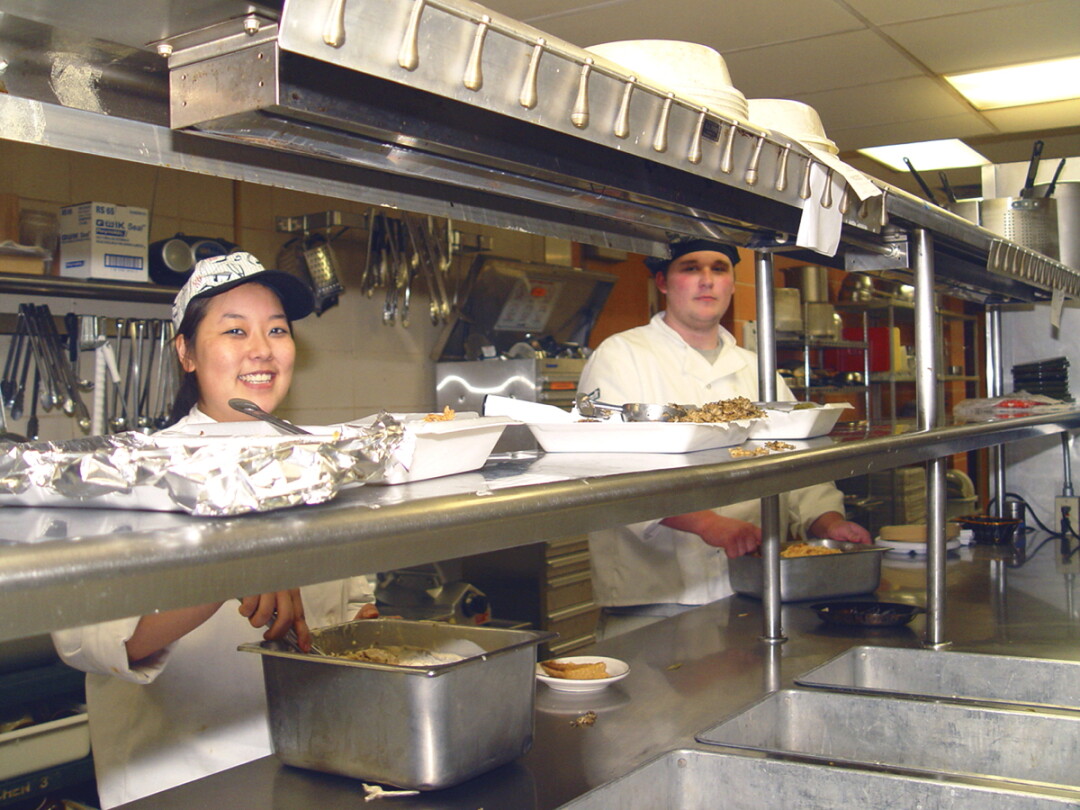Chippewa Valley Technical College poised to launch much-needed hospitality program

Considering the Chippewa Valley’s ever-growing profusion of restaurants and its relatively tight labor market, finding the right people to fill jobs in the hospitality industry can be a challenge. Just ask Mike Adams, managing director at Johnny’s Italian Steakhouse, who has spent more than 25 years in the restaurant business. Since the economy began to recover after the 2008-09 recession, the number of applicants for restaurant jobs has eroded, he said.
“It’s challenging to get anybody to walk through that front door,” especially people with experience, explains Adams, who also assistants with other Larson Companies affiliated restaurants, Green Mill and The Lakely. He said the labor shortage applies to front-of-house jobs, such as hosting, serving, and tending bar, as well as back-of-house positions in food preparation.
“We’d like to create opportunities for people, we’d like to open up great restaurants, but when you can’t find great people, it’s really hard to do that,” Adams added.
“We’d like to create opportunities for people, we’d like to open up great restaurants, but when you can’t find great people, it’s really hard to do that.” – Mike Adams, Johnny’s Italian Steakhouse
It’s for these reasons that Adams and other industry professionals have been involved with helping Chippewa Valley Technical College craft a reboot of its hospitality program, which was discontinued about six years ago. The new culinary arts program – officially known as the Culinary and Operations Management Associate Degree Program – was approved by CVTC’s board on Nov. 16. The program will be up and running by the fall of 2018, said Lynette Livingston, dean of business and academic initiatives for CVTC.
“When we look at the programs that we offer at CVTC, the one cluster area that we are not serving is the hospitality area,” Livingston said. “We do not have a program serving the hospitality area, and that amounts to about 10 percent of what our (regional) workforce looks like.”
Because technical colleges are designed to be responsive to the needs of their local labor markets, this gap was unlikely to remain forever. “Ever since the program was discontinued, the college has been approached by people in the industry, the culinary and hospitality areas, that they need help with their workforce,” Livingston said. A few months ago, CVTC convened a focus group of representatives of K-12 schools, UW-Stout, and of both independent and chain restaurants. Livingston said the group concluded that training was needed both in the culinary arts (i.e., actually preparing food) and in culinary management.
The program will offer a two-year associate’s degree with a culinary arts focus and a management focus; a one-year technical diploma that would focus just on cooking; and a one-semester “embedded” technical diploma focused on topics such as food and beverage safety and kitchen equipment. Once the program is operating, it will serve incoming classes of 24 students each summer and fall semester, Livingston said.
According to CVTC, $2.6 million from the college’s capital improvement budget will be used to renovate part of the Business Education Center, 620 W. Clairemont Ave., and to purchase equipment for the new program.
The program will include an internship component – an important element for local restaurateurs looking for talented employees – and will be built to work with high schools (some students will be those just finishing high school) as well as to make credits transferable to UW-Stout, which offers a bachelor’s program in hotel, restaurant, and tourism management.
Adams, the restaurant manager, is optimistic that the new program will have an impact on the pool of qualified restaurant employees. Unless restaurants are able to lure culinary employees from other parts of the nation to the Chippewa Valley, the region will have to train its own professionals if it wishes to see its dining scene continue to expand and improve, he said.
“I’m going to make doggone sure that it’s going to have a positive impact,” Adams said of the CVTC program.




















